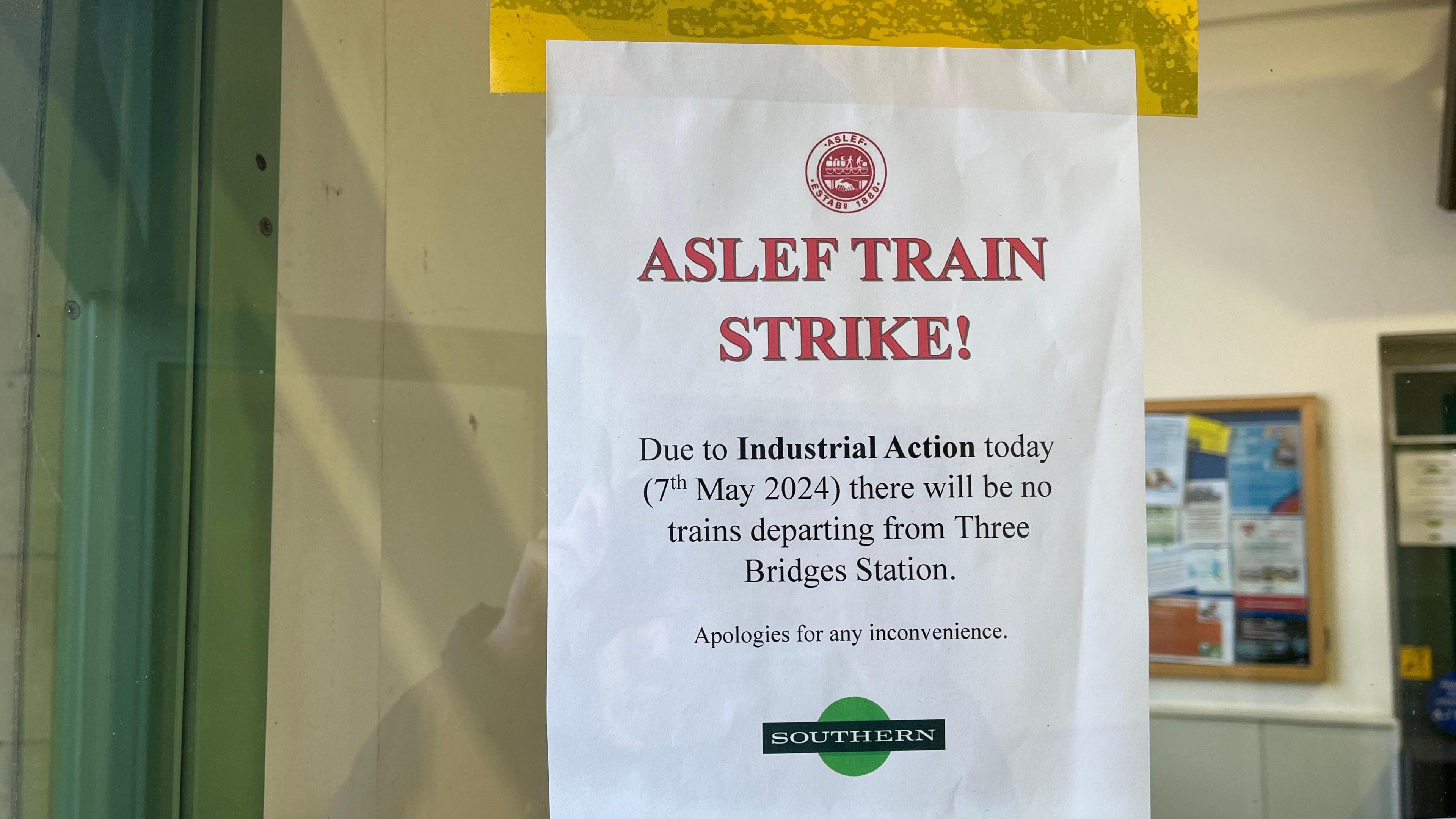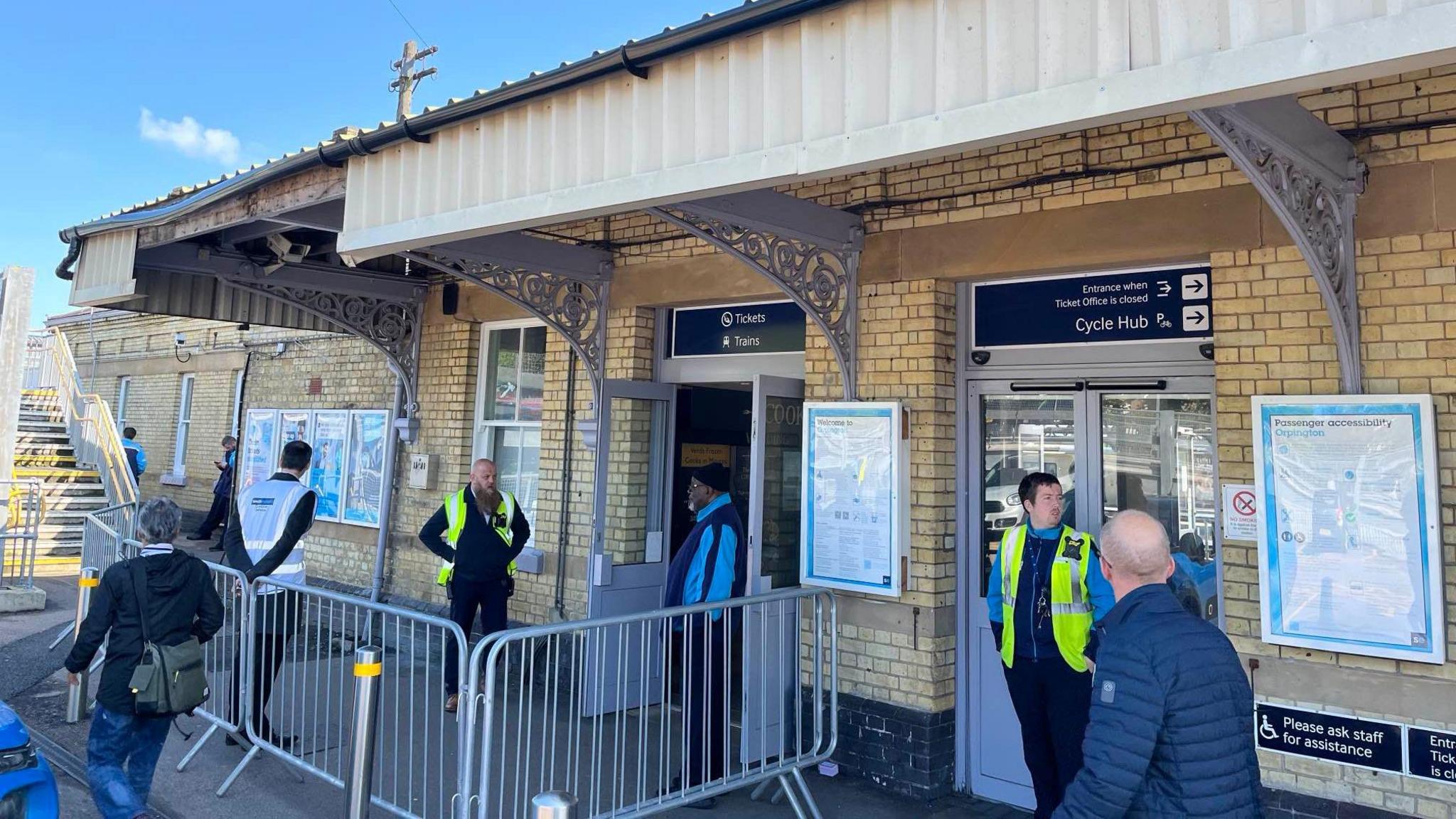Train driver strikes cause disruption

No trains are running from Three Bridges in Sussex on Tuesday
- Published
Rail passengers have been warned not to travel due to strikes by train drivers.
The industrial action by members of the Aslef union means there is limited Southeastern, Southern, Thameslink and Gatwick Express services running on Tuesday.
The union said members have walked out as part of a two-year long dispute over pay and working conditions.
The Department for Transport (DfT) said a pay rise which would take train drivers’ average salaries up to £65,000 – almost twice the UK average salary – had been offered.

Aslef members are striking over pay and conditions
Strikes will also be held on Wednesday and Thursday affecting different operators, while drivers are also banning overtime until Saturday, which is also causing disruption.
'Wholly unnecessary strike'
Passengers are being urged to check before attempting to travel by train due to the dispute, which is now the longest ever in the rail industry.
No formal talks between the operators and the union have been held for a year, but the Rail Delivery Group (RDG) has invited Aslef to talks.
Aslef said its members have not had a pay rise for five years and accused the government of “giving up” trying to resolve the dispute.
A spokesman for the RDG says the strikes will “inflict further damage on an industry that is receiving up to an additional £54m a week in taxpayer cash to keep services running, following the Covid downturn”.
“We can only apologise to our customers for this wholly unnecessary strike action called by the Aslef leadership which will sadly disrupt journeys once again,” he said.

Just two trains an hour are running from Orpington to Charing Cross
A DfT spokesman added: “Aslef are the only union left striking after the government oversaw deals with all the other unions.
“Instead of causing passengers disruption, they should put this offer to their members and work with industry to end this dispute.”
Follow BBC Sussex on Facebook, external, on X, external, and on Instagram, external. Send your story ideas to southeasttoday@bbc.co.uk , external or WhatsApp us on 08081 002250.
- Published9 May 2024
